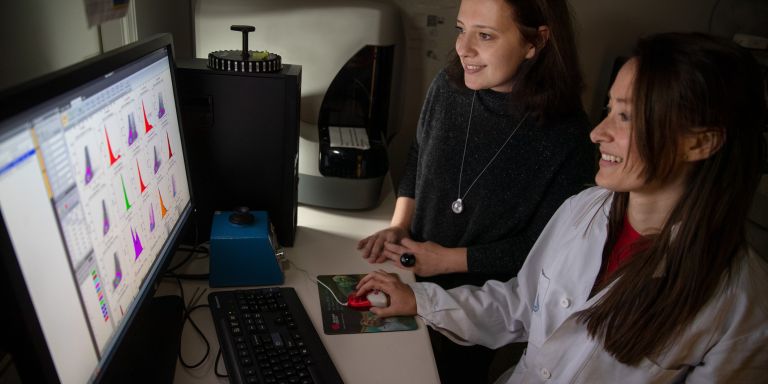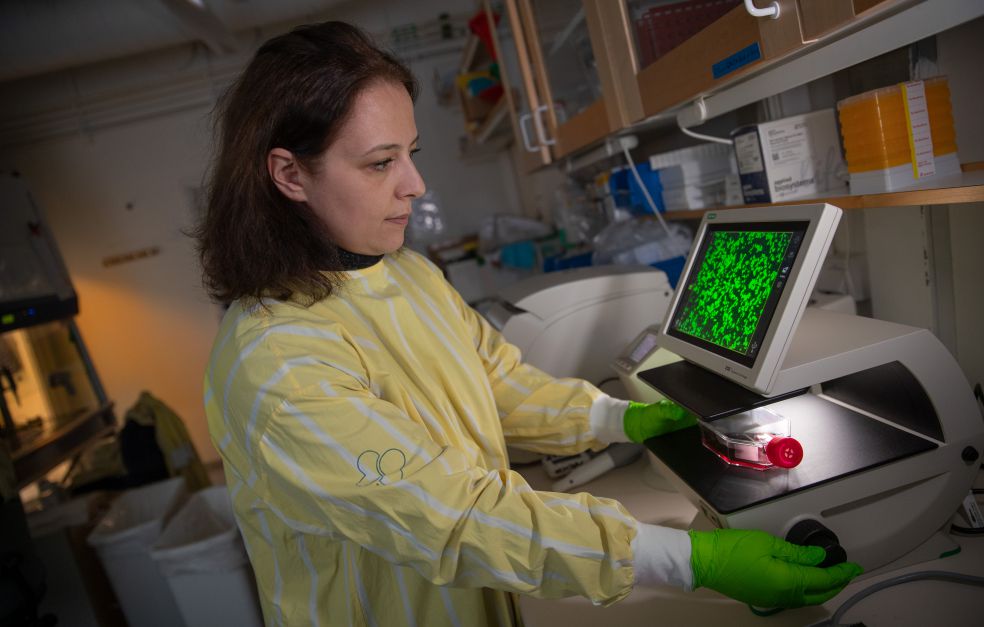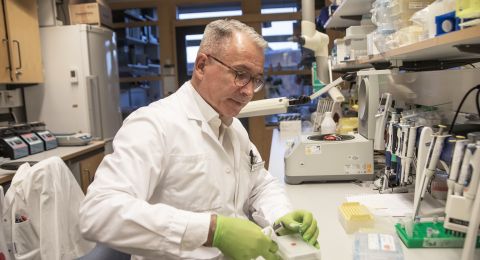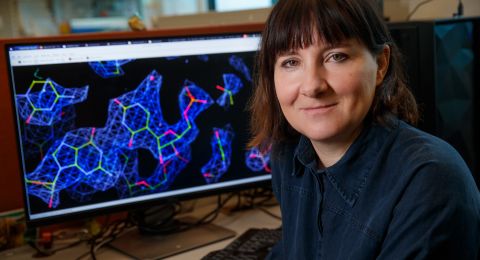
Project Grant 2019
Epigenomic states underlying aggressive inflammation and brain tissue loss in multiple sclerosis
Principal investigator:
Maja Jagodic, Associate Professor
Co-investigators:
Gonçalo Castelo-Branco
Fredrik Piehl
Institution:
Karolinska Institutet
Grant in SEK:
SEK 28 million over five years
At present there are therapies for treating the early stages of multiple sclerosis. But no one knows if these also impact the progress of the disease. Quite simply, we do not know what really happens in the brain when MS occurs and progresses.
MS affects the most complex systems
MS causes the white blood cells in the immune system to attack myelin – the substance that sheaths the nerve fibers in the brain. The communication suffers as a result, causing the symptoms experienced by MS patients.
“MS affects two of the most complex systems in the human body – the nervous and the immune system. Everything we can learn about MS can therefore also aid our understanding of other neuroinflammatory and neurodegenerative diseases,” says Maja Jagodic, associate professor at Karolinska Institutet.
She is leading a research project funded by Knut and Alice Wallenberg Foundation with the aim of increasing our understanding of the mechanisms behind MS. The project focuses on the epigenetic changes in brain cell DNA.
Link between nature and nurture
Epigenetics has been described as the link between nature and nurture. The field provides insights into how different environmental factors cause changes in our DNA.
“We know more than 200 gene variations that influence the development of MS. And we know of a number of key environmental factors. These meet at the epigenetic level, where we see the sum of all risk factors and their impact on the cell’s development and function,” Jagodic says.
Individual factors that impact MS include smoking, vitamin D deficiency, lack of sunlight exposure, infection with Epstein-Barr virus, and a high BMI before the age of 20.
“Smoking is a well-established risk factor, both for the onset of MS and for its severity. Smoking also has a major impact on epigenetics.”
Giving the cell its identity
All cells in the body contain the same genes in the form of a strand of DNA about two meters long. When different types of cell develop, they do so with the help of epigenetic mechanisms. Epigenetics also ensures that cells remember their identity so that a liver cell, for instance, remains a liver cell after it divides.
One of the most studied epigenetic mechanisms is DNA methylation. It can be compared to pins that are attached to individual genes to determine whether or not they are active. The pins consist of methyl groups, a cohesive group of atoms, which bind to specific places in our DNA. When a methyl group attaches, it changes the gene’s expression. The change is not permanent, however; it can be reversed by removal of the group.
The researchers are studying tissue samples from patients in different stages of MS in the hope of finding these changes. Among other things, they are looking for changes that can be linked to immune and nervous system responses, as well at those resulting from treatments given for the disease.
But a single change does not provide a full explanation of the progress of the disease. The epigenetic system is complex.
“Most individual changes have only a miniscule impact on the disease. This includes individual environmental factors. But when they accumulate and likely interact with each other, the risks increase, and it is that interaction we’re trying to understand with the help of epigenetics.”
Large sample of patients
The project includes a sample from a well-defined group of just over 3,500 patients, among them a group of Swedish patients who have been treated for MS since 2011. In parallel, large quantities of patient data and samples are being collected within the scope of an EU-funded project entitled MultipelMS, in which Jagodic is one of the coordinators. Some 500 patients are being monitored via extensive documentation.
Epigenetic changes are stable, which enables the researchers to also use material gathered earlier. This may add to their knowledge, since the material is often accompanied by medical records and clinical surveillance.
“When we discover epigenetic changes that drive the disease, we hope to develop tools capable of reversing the changes,” Jagodic explains.
Tools leading to new treatments
The tools are based on the CRISPR-Cas9 gene editing technique, and could be tailored to remove or add a methyl group from a specific gene or a group of genes, for example. All without altering the underlying DNA sequence.
“The best thing about this form of modification is that we do not affect the DNA itself. That could cause serious mutations. Another plus is that all our modifications are not only stable but reversible,” she adds.
Drugs based on epigenetics for treatment of MS and other diseases are already available.
“But even though we know they work, we don’t know how or why. And they have a broad impact on the epigenome, not the tailored modifications that we want to develop,” says Jagodic.
Text Magnus Trogen Pahlén
Translation Maxwell Arding
Photo Magnus Bergström





